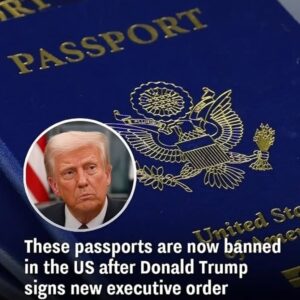Uncertainty is running high on Main Street after a deluge of economic policy changes, with some entrepreneurs reporting unpaid invoices and other funding worries.
President Donald Trump’s first weeks in office have brought a flurry of changes from funding freezes and tariffs to a crackdown on diversity efforts. While courts have halted some of them, small businesses faced with higher costs, steep interest rates and more cautious consumers share a similar message: This isn’t helping.
David Funk said he was stunned when the U.S. Department of Agriculture rejected his $65,000 invoice for work his company had completed since October.
The founder of Zero Emissions Northwest, a Spokane, Washington-based consultancy, Funk connects farmers with federal grants to subsidize equipment purchases and energy bills. A week after his invoice denial, agency representatives confirmed it was because of Trump’s “Unleashing American Energy” order, which halted many projects funded through the Inflation Reduction Act.
“What it’s resulting in is jobs lost, projects canceled and more jobs lost,” said Funk, who furloughed all three of his employees about two weeks ago. Many of his clients are now stuck with equipment they can’t finance on their own. “It is shocking to some of them who have voted for Trump to realize that this might directly impact them,” he added.
Weeks after the Office of Management and Budget rescinded the sweeping freeze on grants and loans it had issued days earlier, Shaundell Newsome, founder of Sumnu Marketing in Las Vegas, said his agency’s internships could still be on the chopping block. The program, with space for four interns per year, is sustained by a Labor Department grant.

Newsome still plans to make his next hire in March, after the agency that disburses the funds said they remained on track to reach him on schedule. But he’s concerned about funding for the rest of the year, including a summer program for high schoolers.
Judge temporarily blocks mass terminations at Consumer Financial Protection Bureau
Funk shared that sense of urgency. “Not getting paid due to a canceled contract and not getting paid due to a paused contract has the same result: We’re not getting paid,” he said.
While small businesses remain broadly optimistic about the months ahead, the National Federation of Independent Business’ latest survey also found that members’ uncertainty hit its third-highest level on record. Many reported curtailing plans to invest in their businesses, wary of tapping cash reserves should economic conditions deteriorate.
Not getting paid due to a canceled contract and not getting paid due to a paused contract has the same result: We’re not getting paid.
Meanwhile, the leaders of major tech firms have been personally courting the president’s favor, and there are signs of executives warming up to an administration promising deeper tax cuts and deregulation. But the nation’s 33 million small businesses, which employ nearly half the U.S. workforce and account for over 43% of economic output, typically have less lobbying clout or margin to adapt to federal policy swings, advocates say.
“We want to see more parity,” said Richard Trent, executive director of Main Street Alliance, a coalition of more than 30,000 small businesses. Trent criticized the “oligarchic acolytes” who he said appeared to be in Trump’s “inner circle” and called for a more “nuanced conversation where everyone’s included.”
A White House spokesperson didn’t respond to a request for comment.
Trump’s business-friendly reputation was one of the leading factors that helped return him to the White House. While the U.S. averaged 443,302 monthly business applications during the first three years of the Biden administration as the economy recovered from Covid-19, compared with 282,362 in the equivalent period of Trump’s first term, many entrepreneurs recall the current president’s earlier time in office favorably. The NFIB’s optimism index soared at the time, buoyed in part by Trump’s tax cuts, and interest rates and inflation both remained historically low until the pandemic hit.
Still, some small-business owners are now taking steps to insulate themselves from the potential negative impacts of recent White House efforts — including those that remain in limbo — before waiting to see how it all shakes out.






